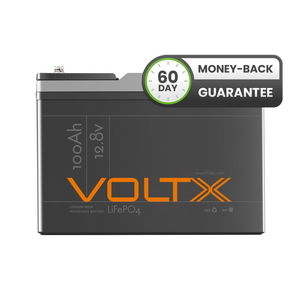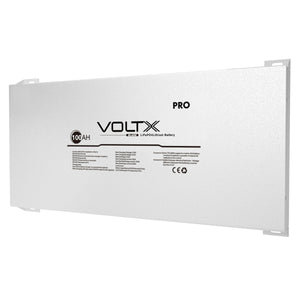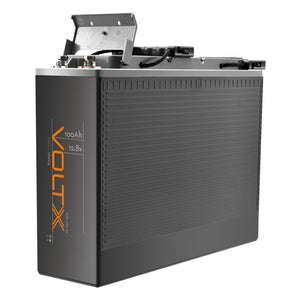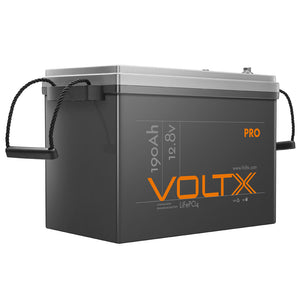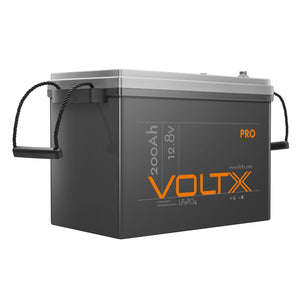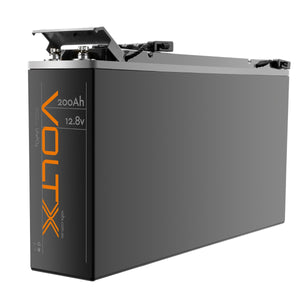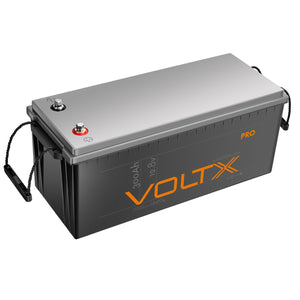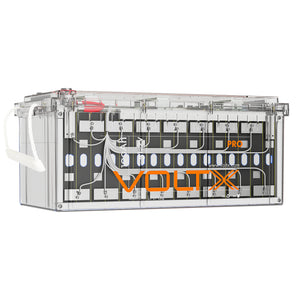Charging is a key factor when it comes to getting battery power. Whether you're looking to power a campsite or temporarily run your essential appliances during a power outage, having a reliable battery around is a must. There are several types of batteries, but lithium is by far the most popular and widely used. These batteries come in varying forms-button-cell batteries, 18650s, LiFePO4 batteries, and more. For easier grouping, lithium batteries can be divided between rechargeable and non-rechargeable.
While both have their specific functions, rechargeable lithium batteries usually have an edge in the sense that they have a longer service life, which makes them a cost-effective option.
Are All Lithium Batteries Rechargeable?
No. This is where the difference between lithium batteries and lithium-ion batteries comes in. Lithium batteries like small button-cell batteries are also referred to as "primary cell batteries" and cannot be recharged. They are characterised by being energy-dense and long-lasting. These types of batteries are usually found in watches and smoke detectors. Once they are completely drained, there's nothing left to do but dispose of them.
Lithium-ion batteries, on the other hand, are rechargeable and are referred to as "secondary cells." Inside these batteries, the lithium ions move in two directions when charging and discharging. Lithium-ion rechargeable batteries are often used in mobile phones, tablets, toys, wireless headphones, and electric vehicles.
There's another type of rechargeable lithium battery that is famous in outdoor settings. They are the lithium iron phosphate batteries or LiFePO4 batteries. They are mostly used as camping batteries, battery backups, RV batteries, and as part of a 4x4 dual battery setup. LiFePO4 batteries are also compatible with solar charging. Charging a LiFePO4 with solar is often used in caravan battery setups, especially during off-grid campings.
Do Rechargeable Lithium Batteries Need a Special Charger?
Every kind of lithium battery has a specific charger suitable for it. While charging it with a different charger might work, it would not top off your battery bank as efficiently as the correct charger will. In most cases, this might even damage your battery. For instance, lead-acid battery chargers are designed with higher voltages. If you use this to recharge a lithium battery that runs at a narrower voltage range, these chargers can potentially overcharge your battery pack. This is why using a charger compatible with your battery's chemistry is crucial. If you're using a LiFePO4 battery, there are special LiFePO4 chargers best suited to effectively charge each one of your LiFePO4 cells.
How Many Times Can You Recharge a Lithium Battery?
The number of charge and discharge cycles is dependent on the type of battery you have and how you use it. Lithium-ion batteries have a typical lifespan of 300 to 500 charge cycles. LiFePO4 batteries last longer with over 2,000 cycles. When translated into years, these batteries have a service life of five to ten years with proper care and usage. Your battery's cell type also plays a role in the number of its charge cycles. Cylindrical cells typically have a longer lifespan than prismatic cells, while lithium polymer cells have an even shorter longevity rate.
Are Rechargeable Lithium Batteries Worth It?
Definitely! Rechargeable lithium batteries eliminate the risk of having to buy a new battery every now and then. They're less expensive, longer-lasting, and generally provide better performance compared to non-rechargeable batteries. On top of overall quality, using rechargeable batteries is more environment-friendly too. They produce less product waste and have less impact on global warming and pollution as well. If you're an avid camper, going for a LiFePO4 makes a great investment compared to choosing conventional lead-acid batteries. Despite the higher upfront cost, a LiFePO4 battery can be used for longer, is more efficient, and most of all is a lot safer. Rechargeable batteries for camping usually come in the form of 12V lithium batteries and in terms of brand, some of the most prominent names would be Enerdrive lithium batteries and Victron lithium batteries.
More from Outbax
Wondering where to get quality rechargeable lithium batteries? Check out our range at Outbax. We have the best 12V rechargeable batteries here, as well as 24V and 48V lithium batteries. All of these are lithium deep-cycle batteries, which means they can be discharged up to 80% and still supply you with stable power. We also have standard 100Ah lithium batteries and even slimline batteries for those looking to save more space. Planning to pair them with solar panels? We got those too, plus inverter generators and power stations! We're experts when it comes to camping equipment particularly portable power sources so don't forget to pay us a visit the next time you need to power up your adventure.
